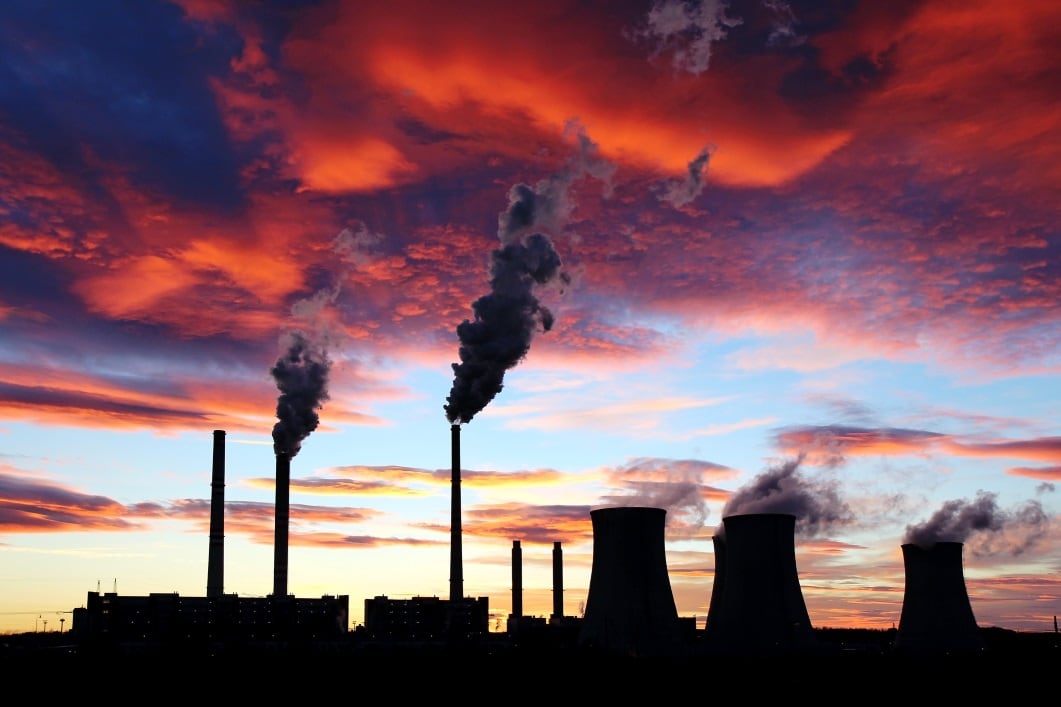Last month, Corbion said that it will slash one-third of its product-related emissions by 2030.
The move reflects the growing emphasis that consumers and Corbion’s food industry customers are placing on carbon emissions and climate change.
“Climate change is in the news today and it is an area that will get more and more attention. It is an area we are looking at as a next step [in our sustainability journey],” sustainability director Diana Visser told FoodNavigator.
The company’s fresh commitment represents an evolution of Corbion’s ‘continuous improvement’ approach to sustainability, she explained. It will take in scope one emissions linked to Corbion’s own production, scope two emissions associated with energy purchased, and scope three emissions within the supply chain. The company aims to cut all CO2 emissions related to energy, key raw materials and transport by 33% per tonne of product by 2030, compared to a 2016 baseline.
“What we have done in past years is more focused on our suppliers meeting our core requirements in the areas of human rights and environment. Now we are looking at how can we improve on this by reducing the carbon footprint for our raw materials. This means our suppliers will reduce their footprint. Also at Corbion we look at reducing our own footprint and thereby making an impact on climate change.”

Science Based Targets initiative provides credibility
Corbion’s goal is based on the work it has done with the Science Based Targets initiative, including a ‘thorough’ validation and approval process.
SBTi is a collaboration between the United Nations Global Compact, the World Resources Institute, the CDP and the WWF. The initiative supports companies in setting carbon footprint reduction targets in line with the Paris Agreement, which aims to keep the average increase in global temperatures to 2°C above pre-industrial levels and to pursue efforts to limit the increase to 1.5°C.
The SBTi helps specify how much and how quickly companies need to reduce their greenhouse gas emissions and provide a clearly defined pathway to future-proof growth.
Visser said that Corbion joined the SBTi in December 2017. The company is using the initiative’s guidance ‘so that we can credibly claim we are reducing our carbon footprint in line with the Paris Agreement’, she explained.
Scope one: Operations
When looking at scope one emissions, Corbion is implementing energy-saving projects at its facilities and, when machinery is upgraded, energy use will be a key consideration. The company is also establishing an R&D programme to identify opportunities for heat integration, electrification, and recycling.
“We have identified a lot of opportunities for energy savings in our facilities… to reduce energy consumption and usage of natural gas and electricity. We have also identified some opportunities for R&D to look at new technologies we can implement in the future,” Visser revealed.
Tackling carbon emissions is one of the four planks that make up Corbion’s approach to responsible operations. “We have four topics we are looking at. First of all, safety. We have a target on recordable injury rates for our own facilities. The second is renewable electricity. The third is zero waste to landfill.”
The focus on improving the efficiency of its operations goes hand-in-hand with Corbion’s zero waste target. “We target zero landfill of specific by-products by 2020. In 2018 we were landfilling two and a half kilotons. Zero landfill for all our waste we target for 2030.”
Corbion’s approach includes valorising side-streams, resulting in more efficient use of inputs. For example, Visser noted: “One of our core products is lactic acid. During the production of lactic acid, we generate certain by-products that can be quite valuable. One example is gypsum which can be used as a soil conditioner and in the cement industry. We have been able to collaborate with the cement industry so they can use our gypsum.”
Scope two: Energy

Alongside this, energy procurement is an important piece of the puzzle. Last year, 42% of the energy the company purchased came from renewable sources and, Visser said, Corbion has set out clear and measurable targets to grow this figure. “We aim to achieve 50% by 2020 and 100% by 2030.”
The company is leveraging a ‘combination of approaches’. “In one of our sites we are co-located with a sugar mill. At that site, all of the electricity and steam we use is generated through the incineration of bioproducts from the sugar mill… We have some sites where we can generate renewable energy ourselves through solar panels. But that can only cover a small amount of our total consumption.”
A ‘major part’ of Corbion’s energy strategy, therefore, relies on procurement of renewable energy – either through certificates or by specifically contracting renewable energy.
Scope three: Supply chain
Corbion has detailed what it described as ‘bold but realistic targets’ that it aims to meet within measurable timeframes for both scope one and two emissions. Scope three emissions, which occur in a company’s supply chain, are notoriously more difficult to quality.
The company believes that a collaborative approach will be crucial. “We have prioritised certain raw materials and transport and are engaging with our main suppliers to get a better picture of the specific emissions related to that and understand what the potential is for the future to reduce those emissions,” Visser revealed.
The company’s responsible sourcing strategy means it already has a history of collaboration with its suppliers for important raw materials, such as cane sugar.

Cane sugar is Corbion’s largest raw material input by volume and the company sources directly from its suppliers. This means it has been able to clearly communicate its expectations around a range of sustainability issues – from labour practices to biodiversity and deforestation.
“Since we buy our cane sugar directly we are really close to the mills and have direct interaction with them. We use an approach that defines the key requirements and expectations from our suppliers. We frequently visit them to create awareness and we have started third party assessments,” Visser elaborated.
For inputs like palm oil, the company takes a different approach relying instead on third party certification from the Roundtable on Sustainable Palm Oil. “We use RSPO certification because it is an established system and we are not very close to the plantations and mills. The supply chain is very complex.”
Visser suggested that these two inputs are current focal points for Corbion’s sustainable sourcing agenda. “For sugar cane it is because it is our largest raw material by quantity. With palm oil, it is the raw material where we see the highest risks related to sustainability and where we get the most questions from our customers and stakeholders. In general, farming of oil palm and sugar cane can be linked to a number of serious social and environmental issues. Human rights issues [include] forced labour, child labour and hazardous labour conditions while environmental issues [include] biodiversity loss and deforestation.”
Action on these issues reflects Corbion’s corporate identity as a sustainable supplier as well as increased customer interest in the subject.
Visser said that she has ‘definitely’ seen growing awareness of sustainability issues in recent years. “If I compare to a couple of years ago the frequency of questions [coming from customers] and level of detail [required in response] continues to increase.”
In this environment, a strong sustainability strategy can be leveraged as a competitive advantage, she noted. “It is a differentiator to have a good sustainability story and a good sustainability performance. It is important to focus on continuous improvement and look at the emerging issues.”



